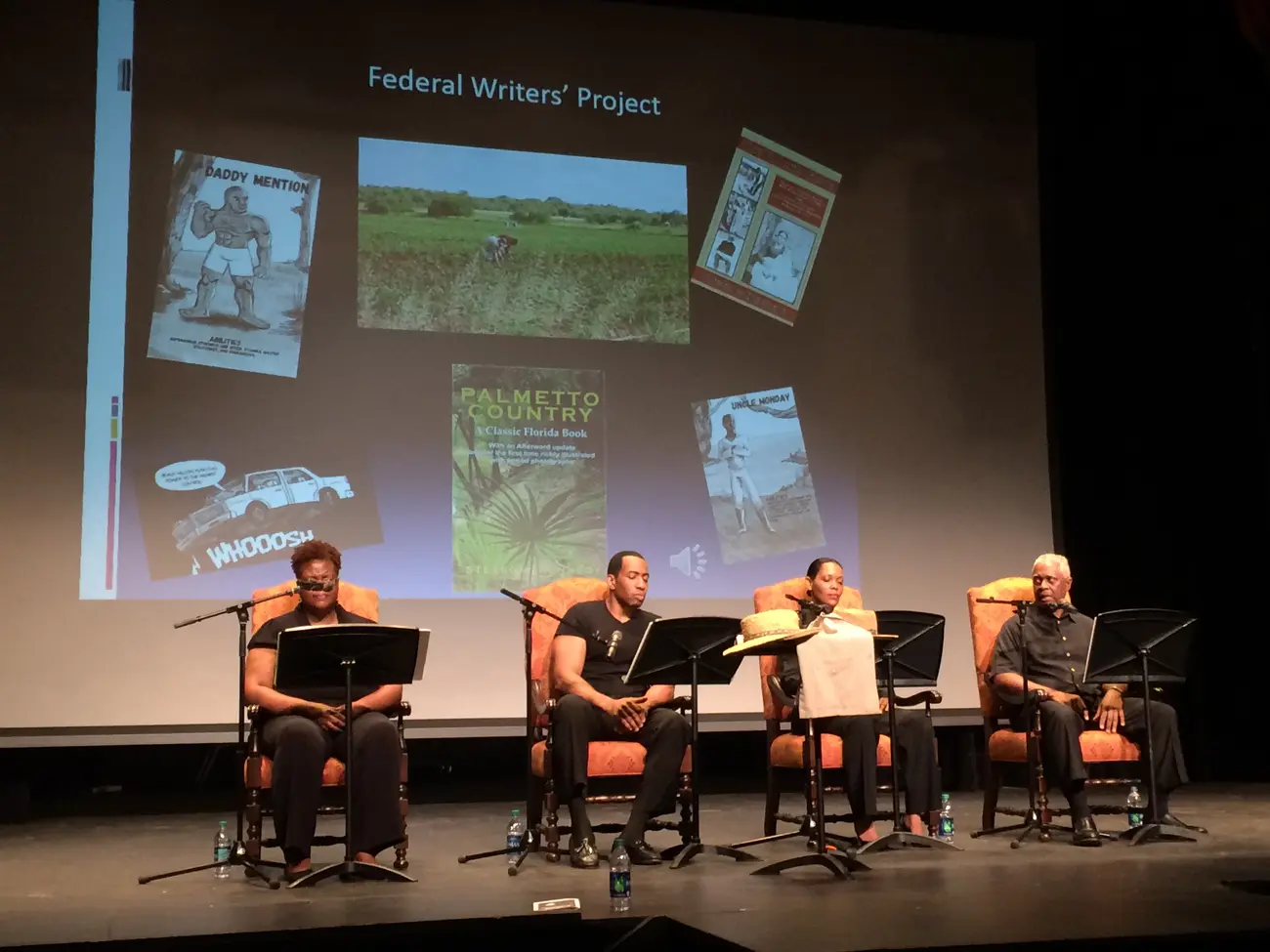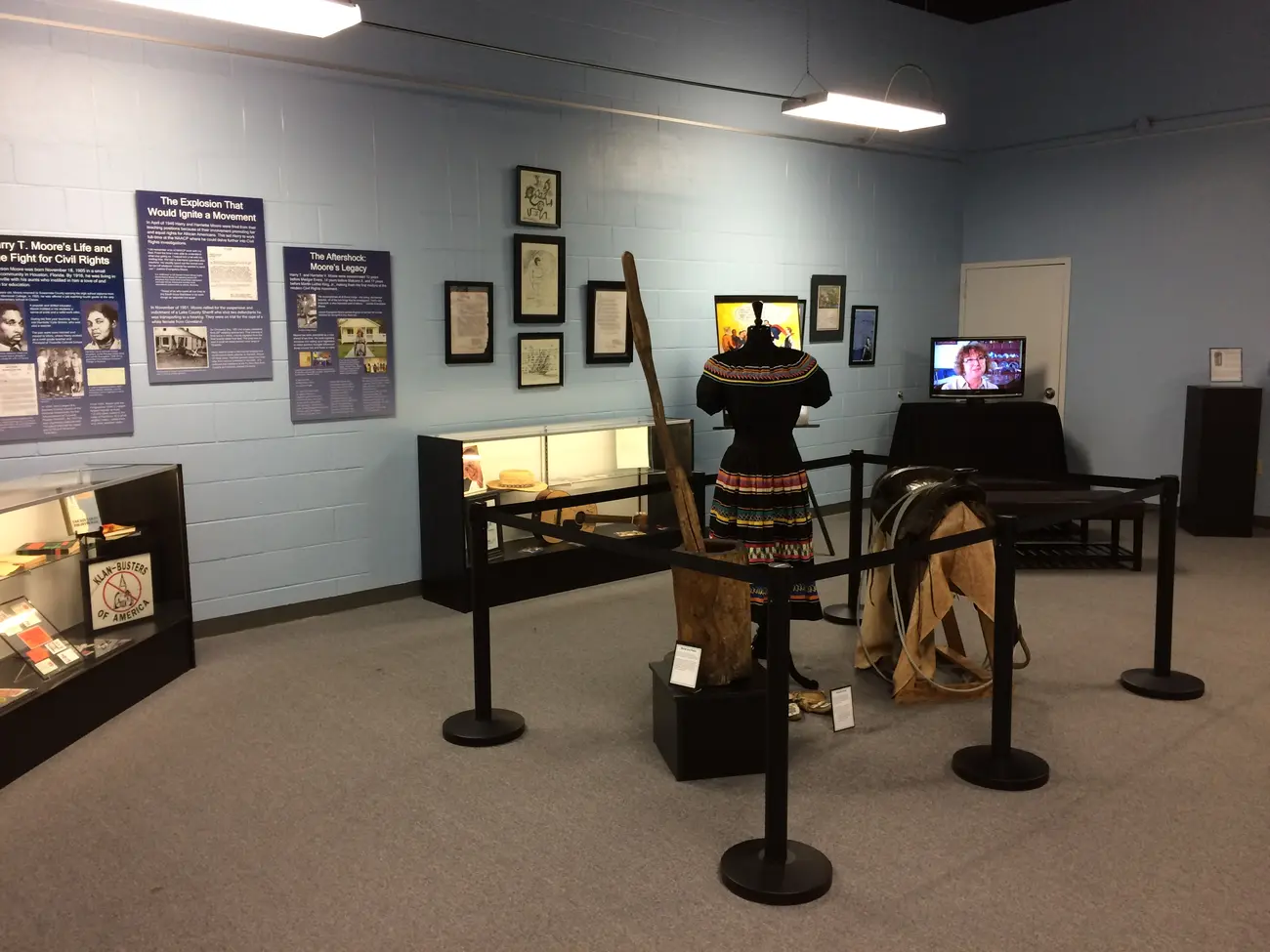Cultural figures from Florida history including Stetson Kennedy, Zora Neale Hurston, and Harry T. Moore will come to life in a performance by the Young Minds Building Success Readers Theater from Jacksonville.
The original production “Stetson Kennedy Legacy: Man in the Mirror” will be performed at the Brevard Museum of History and Natural Science, 2201 Michigan Avenue, Cocoa, Saturday at 2:00 pm. The presentation is free and open to the public.
Young Minds Building Success Readers Theater is part of a larger effort to provide educational outreach.
“Young Minds Building Success was formed in an endeavor to encourage the individual potential for children and young adults, assist in the needs of families and communities, promote a realistic link between educational services and the needs of the business community, partner with educators, businesses, community leaders, and other organizations,” says executive director Tangela Floyd.
The free performance of “Stetson Kennedy Legacy: Man in the Mirror” is possible because of sponsorship provided by the Stetson Kennedy Foundation.
“Our mission is to do all we can to help carry forward mankind’s unending struggle for human rights in a free, peaceful, harmonious, democratic, just, humane, bounteous and joyful world, to nurture our cultural heritages, and to faithfully discharge our commitment of stewardship over Mother Earth and all her progeny,” says foundation director and Kennedy’s widow, Sandra Parks.
Saturday’s performance is part of the “Second Saturdays with Stetson” series being presented in conjunction with the temporary exhibit “Stetson Kennedy’s Multicultural Florida” at the Brevard Museum of History and Natural Science. The exhibition commemorates Kennedy’s documentation of our state’s diverse cultural heritage, and his work to foster equality for all.
Folklorist, author, and activist Stetson Kennedy lived from 1916 to 2011.
From 1937 to 1942, Kennedy traveled throughout Florida recording the oral histories, folktales, and work songs of the state’s diverse population. He spoke with Cracker cowmen, Seminole Indians, Greek sponge divers, Latin cigar rollers, African American turpentine still workers, and many others.
This work resulted in Kennedy’s book “Palmetto Country,” originally published in 1942.
The exhibition includes personal items such as Kennedy’s typewriter, hats, and the handwritten lyrics to the Woody Guthrie song “Stetson Kennedy.” An interview filmed with Kennedy in 2008 is part of a video display.
Kennedy worked for the Works Project Administration’s Florida Writers Project as head of the unit on folklore, oral history, and socio-ethnic studies.
“Well, it was the Great Depression, for one thing, and I didn’t have a job along with tens of millions of other Americans,” Kennedy said in 2008. “At the same time, President [Franklin Delano] Roosevelt had organized something called the Federal Writers Project, and I thought this would be an opportunity for a twenty-one-year-old to start a writing career, so I signed up for the Florida Writers Project.”
In addition to being a folklorist and author, Kennedy was a social activist. In the 1940s he risked his life by infiltrating the Ku Klux Klan and exposing their secrets. Using the name John Perkins, Kennedy was able to gather information that helped lead to the incarceration of a number of domestic terrorists. He wrote about his experiences in the 1954 book “I Rode with the Klan,” which was later republished as “The Klan Unmasked.”
“When I went overseas some years later, I thought I’d get away from my nightmares, you know, of being caught,” Kennedy said. “But in Paris, it was raining frequently, and the traffic cops wore white rubber raincoats with capes and hoods, and their hand signals were very much like the Klan signals, so I kept on having nightmares.”
Kennedy continued working until his death in 2011, at the age of 94. His last book, “The Florida Slave,” was published posthumously. His other books include “Southern Exposure,” “The Jim Crow Guide: The Way It Was,” “South Florida Folklife,” “After Appomattox: How the South Won the War,” and “Grits and Grunts: Folkloric Key West.”
“Most people are disgusted when they see or hear about prejudice and injustice,” says Tangela Floyd, director of the production “Stetson Kennedy: Man in the Mirror.” “The difference between Stetson and most people is, he did something about it. Readers Theater is our small way of helping to continue his legacy.”

